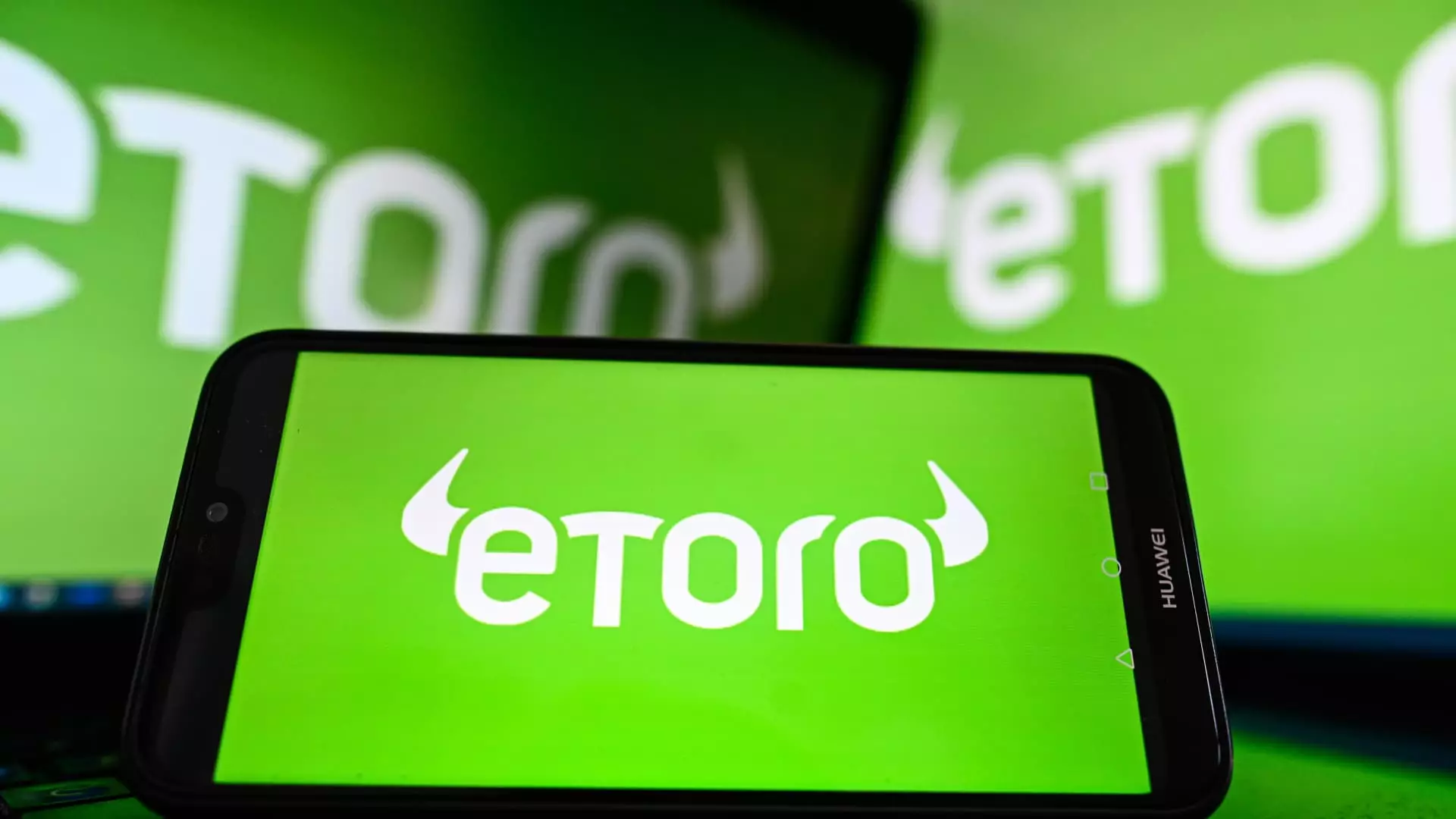eToro, the Israel-based brokerage that has made significant inroads into cryptocurrency trading, is setting the stage for its much-anticipated IPO at a price of $52 a share. This figure not only reflects the company’s valuation of approximately $4.2 billion but also serves as a litmus test for market dynamics amid treacherous economic waters. As eToro prepares to unveil its stock to the public, it raises questions about whether investors are ready to embrace new offerings in a volatile economic climate influenced by rising interest rates and persistent inflation concerns.
The rapidly changing landscape has affected other companies eyeing IPO opportunities, highlighting the fragility of the financial markets. Companies such as Klarna and StubHub have similarly retreated, leading to a cautiously optimistic atmosphere surrounding eToro’s debut under the ticker symbol ETOR. This precarious situation exposes a broader issue: the tendency of market participants to view IPOs as speculative bets rather than calculated investments. eToro now stands on the precipice of either pioneering a revival or succumbing to caution—a gamble on public appetite that could have long-lasting repercussions for its future.
eToro’s Competitive Landscape
Launched in 2007, eToro faces intense competition from household names such as Robinhood, who have effectively captured the retail trading market. As trading platforms not only vie for user engagement but also profitability, eToro has generated substantial revenue through trading fees and has been diversifying into cryptocurrencies. The company reported a staggering increase in net income, almost thirteenfold, hitting $192.4 million last year compared to $15.3 million the year before. This transition could signal a shift in the trading paradigm as cryptocurrencies represent a growing part of eToro’s revenue stream—up to 25% of its net trading contribution last year, a jump from just 10%.
However, while eToro can boast impressive revenue numbers, the question remains whether this growth is sustainable. The crypto market is notoriously volatile and influenced by external factors ranging from regulatory pressures to technological disruptions. Is eToro leveraging bitcoin’s frenetic rise merely to attract investor interest, or can it genuinely maintain reliability as a long-term investment? The specter of crypto dependencies looms large, raising legitimate concerns about the company’s strategic direction.
The Tariff Tug-of-War
The tumultuous environment caused by tariff uncertainties has stalled not just eToro’s plans but also those of many other potential IPO candidates. Companies like Hinge Health and Chime find themselves navigating treacherous geopolitical waters and uncertain economic landscapes. The mere existence of tariff-related speculation can tamper with investor confidence, creating a chilling effect on stock offerings. The IPO market thrives on optimism and clear forward momentum; uncertainty can transform what should be a moment of celebration into a risk-filled venture.
Investors must discern whether eToro’s IPO is merely a product of ambitious forecasts or grounded in realistic expectations. If past performance is any indicator, the inclination to stick with familiar players in the trading industry may overshadow the appeal of what eToro has to offer. Will investors see this IPO as a prosperous opportunity or a risky plunge into tumultuous waters?
Institutional Backing: A Double-Edged Sword
In a noteworthy endorsement, BlackRock expressed interest in acquiring $100 million worth of shares at the IPO price. While such institutional backing might provide a semblance of security, it can also illustrate a stark divide between institutional and retail investor perceptions. Large-scale investors often view opportunities through a different lens, influenced by growth projections and risk assessments. The confidence exhibited by BlackRock might not trickle down to retail investors who are typically more susceptible to market sentiments and volatility.
Furthermore, the involvement of heavyweight underwriters like Goldman Sachs and UBS raises the stakes. While they can lend credibility to the IPO, they also bring their expectations of performance to the table. The urge to present a compelling case for an attractive IPO may cause eToro to paint a rosier picture than the reality suggests. In the public eye, the veneer of valuation can blur the risks lurking beneath.
As eToro steps into the spotlight, the market awaits the unfolding drama. Can it rally the necessary support from retail investors, or will it falter under the weight of skepticism? The outcome of this IPO may not only redefine eToro’s trajectory but might also reshape the broader landscape of online trading platforms amidst increasing economic uncertainties.

